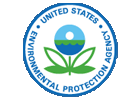On July 19, 2004, the Rosemere Neighborhood Association sent the following request for a correction to Erik Robinson, environmental reporter with the Columbian. This email was not aknowledged, nor did Mr. Robinson issue the correction.
Sent to Erik Robinson:
Erik,
In your recent article, “Rank water a worry”, Jul 18, 2004, you state:
“Meanwhile, the parks department is continuing weekly tests for E. coli and other pollutants at Klineline and Vancouver Lake.”
This statement is not accurate.
Please see the article below taken from the Clark County website, the very first sentence. It states that testing is bi-weekly, not weekly. A lot can happen with water quality in a two-week period. Toxins can spike before this testing will catch the problem, especially during the very hot weather. Swimmers can be at risk, even though this problem is being monitored. There is a huge difference between weekly and bi-weekly testing.
You should issue a correction.
Dvija Michael Bertish
Article posted to the Clark County Website on 6/9/2004
County monitors Vancouver Lake water throughout summer to ensure recreation safety
Contact:
Marty McGinn, Health Department
Phone: (360) 397-8428 ext. 3075
Ron Wierenga, Public Works – Clean Water Program
Phone: (360) 397-6118 ext. 4264
Vancouver, WA— Clark County Health Department will sample water in Vancouver Lake every two weeks this summer to monitor for cyanobacteria (blue-green algae) and E. coli. Although no state regulations have been specifically written for swimming beach safety, Clark County is monitoring water quality at the lake to safeguard the health of people who use the lake for swimming and other forms of recreation.
Sampling for E. coli bacteria and toxin forming algae started on May 24, and will continue until September 13, 2004. Samples will be sent to a laboratory to determine the levels of these substances. The Clark County Clean Water Program is working with the Health Department to ensure scientifically sound water collection methods and to store data. The monitoring plan follows World Health Organization guidelines for managing bathing waters that may produce cyanobacteria; the plan follows Environmental Protection Agency guidelines for E. coli.
Vancouver Lake is rich in nutrients that support the rapid growth of blue-green algae, especially during extended periods of hot, sunny weather. Blue green algae can produce toxins that can cause skin irritations and other illnesses to pets and humans. E. coli is a bacteria that can cause severe diarrhea lasting for several days. E. coli can be spread in water by children and adults, especially by children who are not toilet trained.
Beach closure notices will be posted by Vancouver-Clark Parks & Recreation if a single sample exceeds the WHO cyanobacteria guideline of 100,000 cells per milliliter of water or the EPA E. coli standard of 236 bacteria per 100 milliliters of water. Additional samples will be collected the following Monday and will continue weekly until levels are back within acceptable standards and the lake can be re-opened to swimming.
Residents can find Vancouver Lake water quality information on the Health Department Web site at www.clark.wa.gov/health/environmental/beaches/Vancouver-Lake.html.










![Washington State Water Quality Assessment [303(d)] Washington State Department of Ecology](http://www.rosemerena.org/home/wp-content/uploads/2009/03/ecy_logo.gif)

